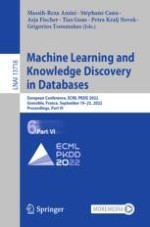2023 | OriginalPaper | Buchkapitel
Towards Federated COVID-19 Vaccine Side Effect Prediction
verfasst von : Jiaqi Wang, Cheng Qian, Suhan Cui, Lucas Glass, Fenglong Ma
Erschienen in: Machine Learning and Knowledge Discovery in Databases
Verlag: Springer Nature Switzerland
Aktivieren Sie unsere intelligente Suche, um passende Fachinhalte oder Patente zu finden.
Wählen Sie Textabschnitte aus um mit Künstlicher Intelligenz passenden Patente zu finden. powered by
Markieren Sie Textabschnitte, um KI-gestützt weitere passende Inhalte zu finden. powered by
Abstract
FedCovid, a new federated learning system based on electronic health records (EHR), to predict COVID-19 vaccination side effects. Federated learning allows diverse data owners to work together to train machine learning models without sharing data, ensuring the privacy of EHR data. However, because EHR data is unique, directly using existing federated learning models may fail. The EHR data is diverse, with numerical and categorical characteristics as well as consecutive visits. Furthermore, each client’s data size is unequal, and the data labels are skewed due to the small number of patients that experience serious side effects. We present an adaptive approach to fuse heterogeneous EHR data and apply data augmentation techniques working with a margin loss to overcome the data imbalance issue in the client model training to address both challenges simultaneously in FedCovid. We recommend that when the server is updated, the data size of each client be taken into account to lessen the impact of clients with small data volumes. Finally, in order to train a stable and successful federated learning model, we suggest a new ordinal training technique. Experiments on a real-world dataset reveal that the suggested model is effective at predicting COVID-19 vaccination adverse effects. The performance increases by 14.35%, 17.81%, and 129.36% on the F1 score, Cohen’s Kappa, and PR-AUC, respectively, compared with the best baseline (The source code of the proposed FedCovid is available at https://github.com/JackqqWang/FedCovid.git).